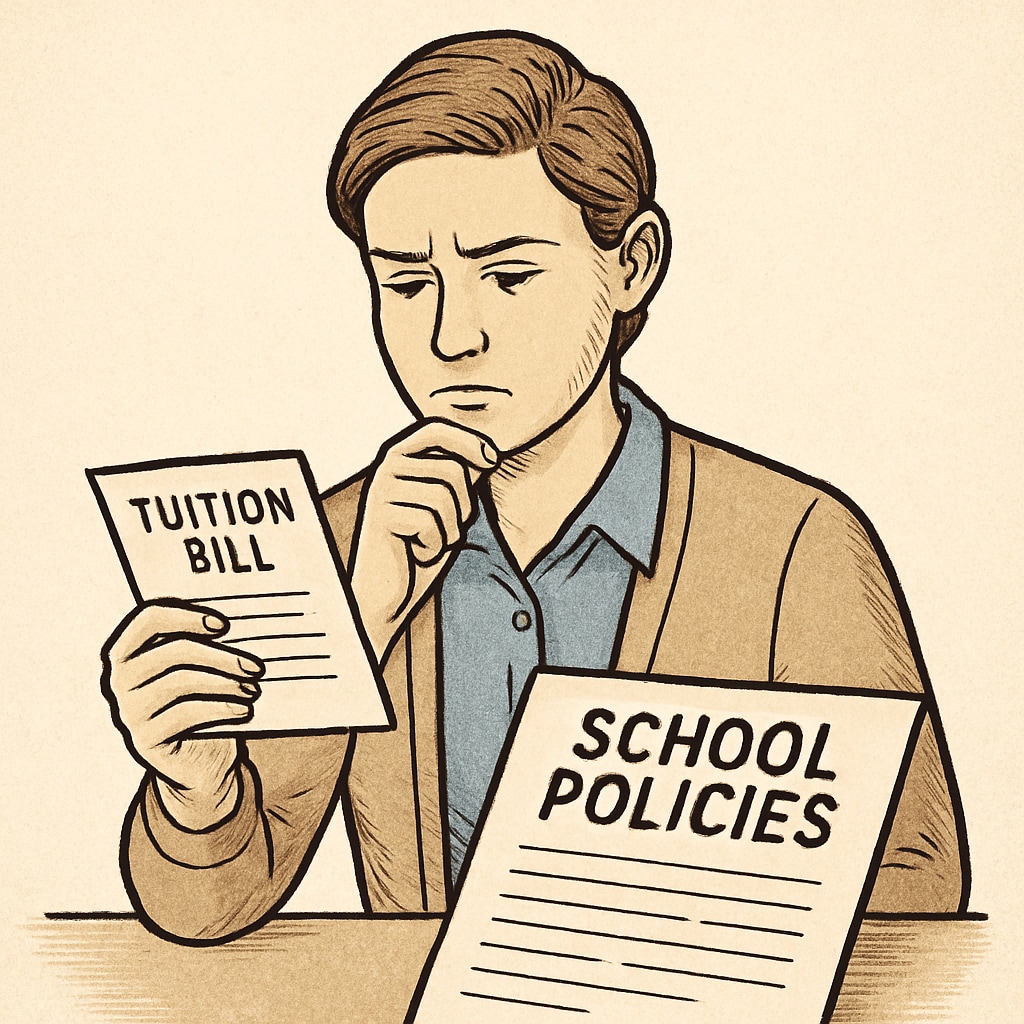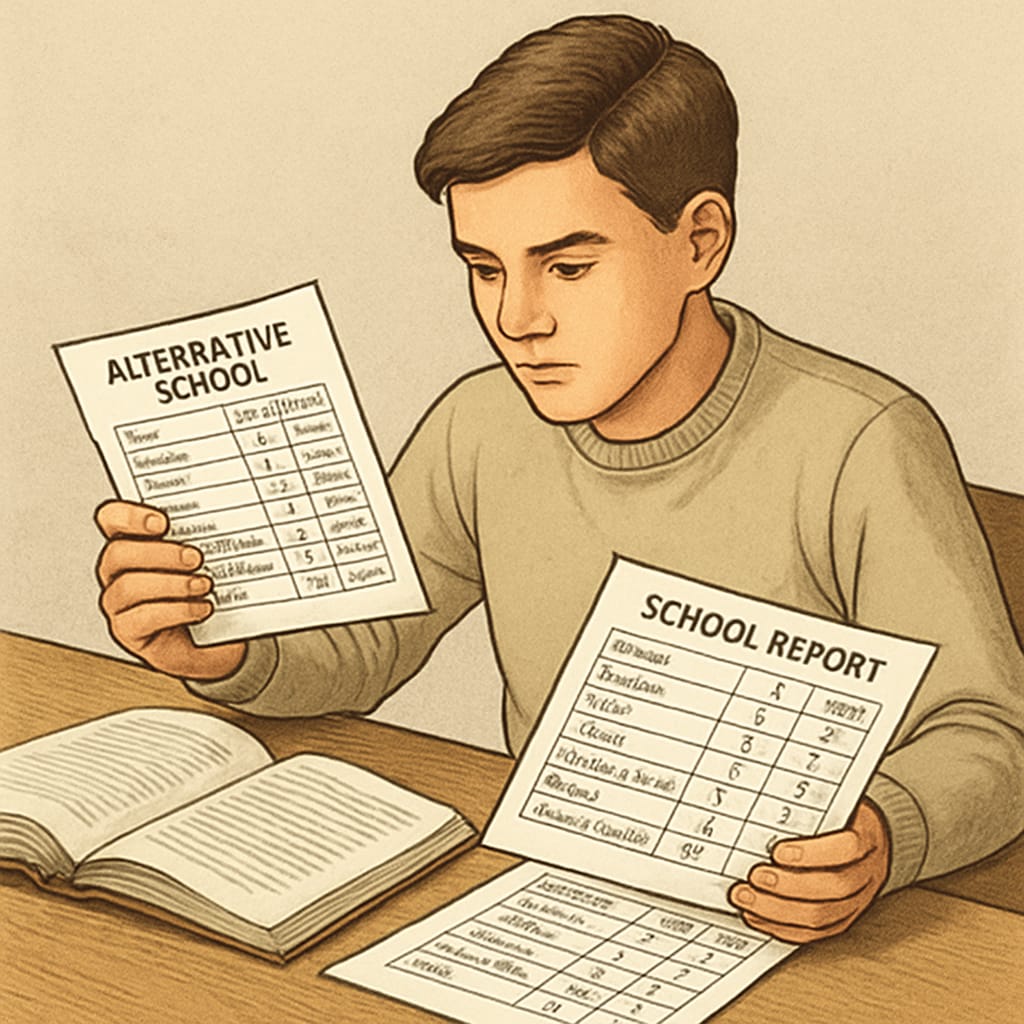Parents often find themselves in a challenging situation when they need a child’s report card for critical purposes but are unable to access it due to unpaid school fees. This issue becomes especially pressing if the academic records are required for professional licensing exams, school transfers, or other essential processes. Schools commonly withhold report cards or transcripts as leverage to resolve unpaid balances, raising questions about the legality and ethics of such policies. In this article, we’ll explore the implications of this practice and provide actionable strategies to help parents navigate this dilemma while prioritizing their child’s educational future.
Understanding the Link Between Unpaid Balances and Report Card Policies
Many schools, particularly private institutions, enforce policies that restrict access to academic records when families owe tuition or other fees. These policies often stem from the need to ensure financial accountability. However, withholding report cards can have unintended consequences, such as delaying a student’s enrollment in a new school or preventing them from sitting for professional licensing exams.
Legally, the enforceability of these policies varies by jurisdiction. For example, public schools in the United States are generally prohibited from withholding academic records due to unpaid fees, as this could violate a student’s right to education. On the other hand, private schools operate under different contractual agreements, often granting them more discretion in implementing such measures. It is essential for parents to understand their specific rights and the laws applicable in their region.

Legal and Ethical Questions Surrounding Withheld Academic Records
The practice of withholding report cards raises several ethical and legal questions. First and foremost, is it fair to penalize students for their parents’ financial challenges? Critics argue that blocking access to academic records can disproportionately affect families already struggling with economic hardships. Furthermore, in cases where records are needed for time-sensitive purposes, such as professional exams or transfers, withholding them can disrupt a student’s future opportunities.
Legally, some states and countries have introduced regulations to limit this practice. For instance, California prohibits public schools from withholding transcripts regardless of unpaid balances. Parents are encouraged to research local laws and consult legal resources to determine their options. Websites like Nolo provide accessible legal advice for such situations.
Practical Solutions for Parents Facing This Issue
If you’re struggling to access your child’s report card due to unpaid balances, consider the following strategies:
- Communicate with the school: Open a dialogue with school administrators to explain your financial situation. Many institutions offer payment plans or temporary fee waivers to accommodate families in need.
- Seek legal counsel: If you believe the school’s policy is unlawful, consult an attorney or a legal aid organization to explore your options. In some cases, schools may be compelled to release records under specific circumstances.
- Negotiate partial payments: Proposing a partial payment or good-faith deposit may encourage the school to release the necessary records while you work toward resolving the remaining balance.
- Access alternative records: If the school refuses to release official transcripts, inquire about interim records or grade summaries, which may suffice for immediate needs.

Long-Term Strategies to Avoid Future Issues
To minimize the risk of encountering similar challenges in the future, parents can adopt proactive measures:
- Budget for tuition: Include school fees as a priority in your household budget to ensure timely payments.
- Explore financial aid: Investigate scholarships, grants, or other assistance programs that can offset educational costs.
- Understand school contracts: Carefully review enrollment agreements to identify any clauses related to unpaid balances and academic record policies.
By taking these steps, families can reduce the likelihood of financial disputes impacting their child’s education.
In conclusion, the issue of accessing report cards amidst unpaid balances highlights the intersection of financial obligations and educational rights. While schools have legitimate reasons to enforce payment policies, it’s essential to strike a balance that upholds students’ academic opportunities. Parents can navigate this complex situation by understanding their rights, communicating with schools, and seeking legal or financial assistance when necessary. Ultimately, fostering collaboration between families and educational institutions is key to resolving this dilemma effectively.
Readability guidance: This article uses concise paragraphs, actionable lists, and clear transitions to ensure accessibility. Legal and financial terms are explained in simple language, making the content suitable for a broad audience.


